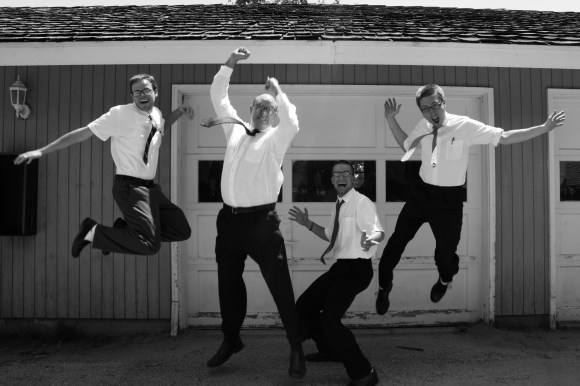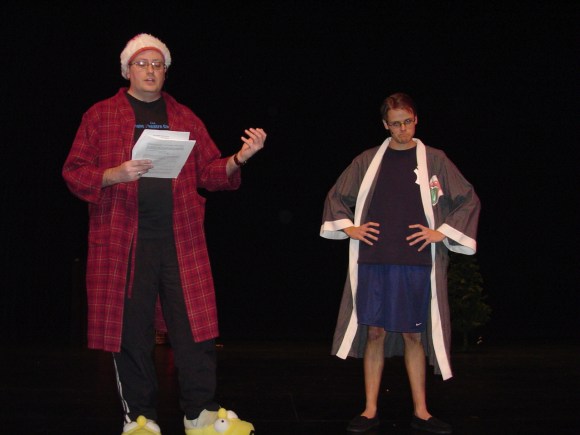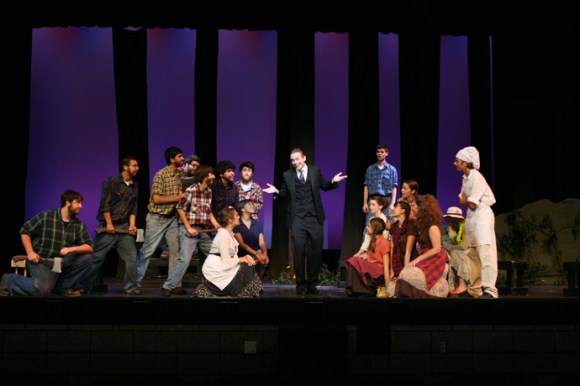On Woden’s Day¹, I made preparations for a great celebration.
But first, we shall talk about wisdom. Today’s class was about preparing our major research paper for the fall term. How to structure it, what to keep focus on, what to take out, proper documentation of sources, etc. etc. We have six questions to choose from. It only has to be 3,000 words or so, and I’ve already written one that long on The Merchant of Venice². Plus, the short play I’ve been working on is over 3,000 words, so another 3,000 word essay shouldn’t be too much trouble. Except.
Except this is the one where we have to get really theoretical and academic, with twenty different sources, and that might prove difficult for me. A lot of the people in the course did an undergrad at UCD in drama, and so they have a fairly deep background in theatre theory. Me? Not so much. I’m not sure if this is a difference between American and European traditions, but in my theatre world, we never got around to talking about Foucault or Pavis, or semiotics vs. phenomenology very much. We just did it, and had our own ideas of what “theory” is.³ Maybe we learned this stuff in some of the undergrad theatre courses I had, but darned if I can remember it now.
The other day one of the girls in the course referred to me as the “father figure” of the group. That could either be a compliment or a little sting at my age. I’m not the oldest member of the class, but I’m on the far side of it. So if I’m the Father Figure, then I should have a bit more wisdom about this whole theatre-theory-thing, right? It’s more than a bit frustrating that I don’t seem to “get” what they’re talking about as fast as the others. But when you talk to people in private, it turns out most of them don’t grasp it any more than I do (for the most part.) I mean, I’m not an idiot. I can be insightful about what Foucault was talking about in Discipline and Punish, but it tends to be more about the education world than the stage. (Once again, the teacher side of me wins out in the argument…)
Maybe the wisdom I have is in the part of my brain that says, “Okay, we can talk all day about psychological verisimilitude, or whether or not something is ‘Beckettian,’ but in the end, isn’t it about whether or not the show was any good? It either worked, or it didn’t.” And more specifically, in the youth instructional theatre world wherein I ply my trade, it’s mostly about, did the kids have a positive experience, did they learn something, and did it contribute in some small way towards them becoming a good person? Did it add to their first glimmers of wisdom?
Maybe that’s too simplistic of a view on it, but that’s what my gut tells me.
Footnotes!
¹Woden is also known as Odin, the All-Father of Norse mythology. He hung from the World Tree, Yggdrasil, for nine days and nine nights to gain wisdom. And he also lost an eye…for wisdom. Wisdom’s important when you’re the All-Father.
² I turned in this essay a month ago, and haven’t yet found out my grade. I’d really like to know how I’m doing as far as my academic writing goes, because I’m pretty rusty with it. So seeing how I did would be helpful. Formative assessment, people…it’s important.
³ My theories of theatre tended to be, “Let’s just make it up as we go”, and “I’m tired of seeing the same shows done over and over again, so let’s write our own”, and “Let’s just poke fun at everything about this world.” I cite these examples:













